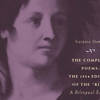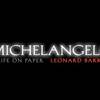Re-Thinking Italian American Studies at the Calandra Institute
Is there more to Italian American culture than the annual street fairs, ‘Jersey Shore guidos’ and macho mafiosi? How does Italian-American studies fit into the larger panorama of ethnic and immigration studies? of Italian Studies? In the post postmodern era of ‘conspicuous culture consumption’, how does the Italian-American intellectual chart a new course?
These questions and others were explored extensively throughout the weekend at the John D. Calandra Institute’s most recent cultural event: "Re-Thinking Italian American Studies: A National Symposium."
Co-organizers Fred Gardaphé, Distinguished Professor of English and Italian American Studies at Queens College in New York and Anthony Julian Tamburri, Professor and Dean of the Calandra Institute, envisioned a forum for examining the expanding influence and popularity of the field of Italian American Studies. At the initial press conference Friday evening Dr. Tamburri explained to reporters that new developments in the national languages and ethnic studies disciplines had not only changed the shape of Italian American studies but had also expanded its scope and importance within the Academy.
The growing wide-spread interest in Italian-American studies speaks to the many challenges facing ‘nationhood’ and ‘national identity’ in the global 21st century. “Italian American” is by definition hybrid, trans-historical and inter-national: a dynamic identity that exists in tension between the global and the local.
Together with other ethnic studies programs such as African American and Latin American Studies, Italian American Studies has weakened and destabilized the strict confines of the traditional national entity.
In a series of panel discussions, some of the Tri-state area’s distinguished professors debated the notion of a political and cultural identity - ultimately eschewing established definitions based in geographic, political and/or ethnic boundaries in favor of an “imagined community”.
Soft-spoken Teresa Fiore, newly appointed Inserra Chair for Italian and Italian American Studies at Montclair State University, observed that, for her students, Italy is now "more of a destination than a point of departure".
In other words, the Italian American community as a close-knit, highly localized cultural linguistic immigrant cluster has been replaced by a more confident, diverse and scattered generation in search of its roots. While Fiore, the only female panelist, suggested that scholars look to their students for guidance and inspiration, her colleagues debated other ways for developing and improving their programs. Peter Carravetta, Alphonse M. D’Amato Professor of Italian at Stony Brook University, advocates a grass roots approach to cultural studies and frequently meets with ‘Sons of Italy’ clubs and other neighborhood specific groups. Peter Viscusi, Professor of English at Brooklyn College, emphasized the importance of working with colleagues in other fields and programs, of participating in interdisciplinary efforts and generally integrating Italian American studies into the larger theater of the Humanities.
In an interview with Prof. Gardaphé we learned that this was “a real meeting of the intelligentsia” and the first conference in the history of the field dedicated specifically to the Italian American Studies program. Invitees were limited to the most distinguished faculty members and only those who direct Italian American Studies departments or programs were asked to speak.
In response to accusations of elitism, Gardaphé shrugged, “I’m interested in the future of Italian-American Studies and I’d like to see departments and programs open up across the country. We have other conferences for discussing our individual research agendas.” The proceedings continued throughout the day on Saturday and included presentations by Richard Alba of The City University of New York, William Connell of Seton Hall University, Stanislao Pugliese of Hofstra University and Paolo Giordano of the University of Central Florida.







































Comments
cialis canada
viagra cheap
viagra cheap
cialis
generic cialis online
buy cialis online
viagra cheap
generic cialis
buy cialis
buy cialis
buy viagra
viagra
cheap cialis
canadian cialis
cheap cialis
buy cialis online
buy viagra
buy cialis
cialis
viagra
buy viagra online
cialis online
viagra
cialis super active
viagra
tadalafil
generic cialis
buy viagra
cheap viagra
generic cialis online
viagra
cialis online
canadian cialis
buy viagra online
generic cialis online
viagra
cialis online
generic cialis
cialis cheap
online viagra
cheap viagra
cheap viagra
cheap viagra
generic cialis online
viagra generic
canadian cialis
cheap viagra
buy viagra online
buy viagra
buy cialis
Pages